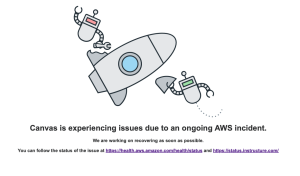I’m offended that you’re offended
October 13, 2017
Whether it’s in an online forum or just in class among students, there’s been a lot of heated discussion taking place lately. Perhaps it’s a political argument, or maybe a fight about differing beliefs, but it seems as though everyone’s more temperamental than usual.
The contention itself is nothing new. Individuals have always and likely will always argue about their disagreements, and there’s usually some kind of compromise that opposing sides can reach.
The one consensus that the vast majority agree on is that nobody should lose their freedom of speech so they can express their beliefs, even if others disagree with them.
That freedom of speech is what brings about progress, such as the universal right to vote. Even though we haven’t achieved true equality among all individuals and likely never will, it’s in that civil discourse and ultimately the compromises where we inch closer to that ideal world.
What’s new to this recent brand of discourse, though, is how easily fired up participants are becoming and how emotional thinking is becoming acceptable.
In other words, it’s becoming justified to verbally attack someone else on the basis that they made you feel uncomfortable, even if their intention wasn’t to instigate.
I’m a member of an online group where users can make posts, and after an individual made a post about one of their beliefs, there was an uproar of activity against the user because other members were personally bothered by their decision.
Other users who felt personally attacked by the responses took it upon themselves to convince them of the error of their ways.
Perhaps it’s a bit premature for me to evaluate that situation, but it seemed like both sides were getting very easily agitated for no good reason.
To clarify, there are certain situations where victims who’ve suffered from truly violent situations are more easily disturbed. This is obviously a reasonable form of sensitivity. It should also be painfully clear that hateful language shouldn’t be condoned in any way.
The other side of sensitivity seems somewhat illogical, and that’s because we’re using our immediate emotional response instead of a more calculated one.
Let’s say I’m playing a game of Monopoly, and after spending a couple of hours playing, I lose, probably first because I somehow always lose first in Monopoly. Of course I’m going to be bothered by losing, but what’s important is if I’ll let my initial emotions get to me, or if I’ll take a deep breath, relax, and realize that making a big deal out of the issue wouldn’t help me in any way.
I’m not intending to say that everything in life’s a game and we shouldn’t take it seriously, but those responses are what I’d like to focus on. Oftentimes we hear something we disagree with and we immediately feel offended that someone else would have the audacity to disagree with you.
A journalist for the paper last week wrote a piece that was harshly criticized, merely on the basis that readers disagreed. What frustrated me was not the disagreement, but how quickly users were bothered by a feature piece that didn’t intend to trigger the student body.
If we truly said “I’m offended and don’t want to respond in a civil manner” at every point we felt that way, then we’d never achieve anything meaningful, primarily because most worthwhile work isn’t achieved through comfort and requires some sacrifice.
We profess to want everyone to feel comfortable to speak their mind, but is it not hypocritical with how quickly we bring judgement upon those who we merely disagree with, thus infringing upon the very thing we seek to protect?
The main effect this hypersensitivity has on us is that we become overly careful about what we’re saying to the point where it inhibits conversation.
It’s been said in multiple language classes that I’ve take that conversation should be a mix of spontaneity and thought, but with how sensitive we are to opposing viewpoints, one who wishes to contribute to a discussion about, say, politics, must have pre-planned a response that couldn’t possibly offend anyone, which limits the conversation
At this point, I’ve likely offended a few readers of this piece. In response, I say that I’m more than willing to have an honest, non-agressive conversation about it. If we can find the points we agree on and find some sort of compromise, then we’ll have made progress.










































